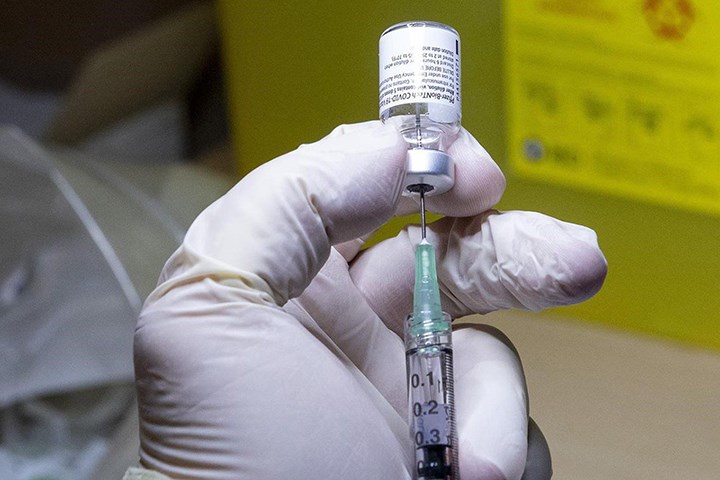A delivery hold-up to COVID-19 vaccines has impacted Saik’uz First Nation’s roll-out plan to its most vulnerable.
Before Pfizer temporarily reduced global deliveries to upgrade its European plant, the Indigenous community near Vanderhoof was initially hoping to have Pfizer vaccines available for elders 65 or older by the end of this month or the beginning of February.
With fewer vaccines now available, the nation is now looking at vaccinating only elders 80 or older, said Sasha Striegler Iannone, communications manager.
“We are currently in discussion with the First Nations Health Authority over the amount and timeline of the vaccines to made available to Saik’uz,” she said.
Provincial Health Officer Dr. Bonnie Henry confirmed the supply hold-up would impact all of B.C. over the next few weeks.
“We have to manage our supply within the limited amounts that we have,” Henry said in a Jan. 25 update with health minister Adrian Dix.
Access to the COVID-19 vaccine by Moderna will also be limited.
Due to the delays, Henry said people would not receive their second dose for up to 42 days, which allows the province to complete immunizations at long-term care homes and address outbreaks within hospitals and communities.
As of Jan. 25, there are no positive COVID-19 cases within Saik’uz.
The Saik’uz Daycare recently reopened after the test results of a staff member who was potentially exposed to the disease came back negative.
Non-Saik’uz members continue to be turned away by checkpoints located at the entrance and exit of Kenney Dam Road.
The disease has slowed progress on the construction of a cellphone tower within the community where members do not always have access to reliable internet or cellphone service, and disrupted Saik’uz’s social culture of gathering and being with each other.
It has also exacerbated substance use issues, with the risk of overdose increasing as more use alone.
“Our community is strong, however, and we have every faith that we will pull through this pandemic with compassion, care, and conscientiousness,” Striegler Iannone said.



